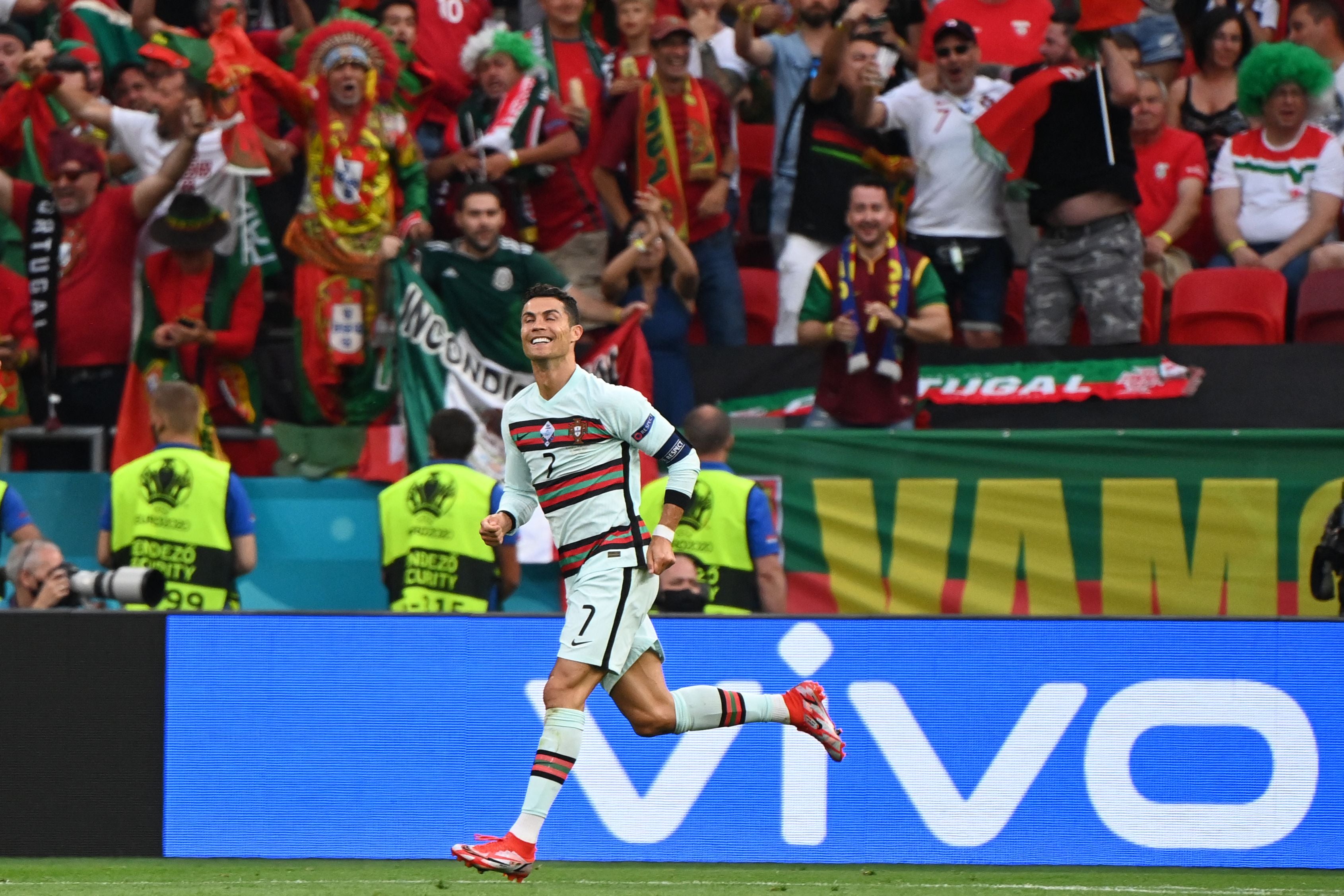
To pinch a phrase from the history-maker and headline-spinner Cristiano Ronaldo, “winning is the most important thing, it’s that simple.”
For Portugal on Tuesday evening, that was very much the case: a secure victory against a tenacious Hungary that had come into the tournament on the back of an 11-game unbeaten run and had the benefit of being propped up by 61,000 supporters - then discuss everything else later.
Three goals in the final eight minutes resulted in quite a comfortable scoreline that distorted reality and could fool Fernando Santos’ side into believing there’s nothing much to scratch at from their opener.
After all, the match equalled their largest margin of victory at the European Championships, recorded in 1996 against Croatia and over Germany in 2000.
It also marked Portugal as the first team in the history of the showpiece to score as many goals in the closing minutes of an encounter.
In hostile, unsettling circumstances with the hosts in the ascendancy, the defending champions did the business. They bagged the most important thing, by a stretch at the end, and so what is there left to discuss?
To dip into the Cristiano pool again, “if you think you are perfect already, then you will never be” - especially if your remaining group opponents are a formidable France and a Germany adept at keeping the ball.
Portugal had various problems against Hungary, who were showing more attacking aggression, before two hugely fortunate deflections resulted in the opener.
As a start, there was great imbalance in the starting XI that was sans Joao Cancelo, who tested positive for Covid-19. The inclination of Bernardo Silva, Diogo Jota and Bruno Fernandes to operate centrally and manoeuvre between the lines saw them spend spells trying not to get in each other’s way.
Narrowing the pitch played to Hungary’s strengths, allowing their organisation off the ball to prosper with little to no variation testing it.
Ronaldo was the only player attempting to get beyond the defence and stretch them, but there were no passes targeting his runs as Portugal opted to play short and passive.
When the ball did shuffle out to wide areas, the decision-making was poor with aimless crosses directed to no-one in the box. That was another issue: Portugal, despite their wealth of attackers, were not committing numbers into the area and nor were they committing markers or muddling them.
They had, perhaps, too much of a good thing as all their technical operators were effectively cancelling one another out.
Santos’ changes amended that with more direct, rapid options. The first substitution was a bit of a head-scratcher. It was not the gifted Joao Felix, nor the prolific Andre Silva. It was not the exciting Pedro Goncalves being tracked by Europe’s super clubs nor Valencia’s dynamic Goncalo Guedes.
In a move that felt quite Fifa management in turning to the guy with sheer pace, but was inspired, Rafa Silva was introduced. The most unconvincing player of Portugal’s offensive weaponry was ready to run at Hungary and make things happen.

His fingerprints were on all three goals and Renato Sanches was the other game-changer. He entered on 81 minutes, with the encounter still goalless and applied intelligence into their attacking intentions.
Sanches’ movement occupied markers to leave Silva free for the opener. His strength, driving run and pass led to the penalty that Cristiano converted for another slice of history and he also instigated the lovely third goal.
Portugal’s starters had not displayed that verve, and they underwhelmed for large periods with static football.
Germany’s laboured possession in the defeat to France had a similar slant to it, although they had superior control over the ball and better retention of it.
The world champions, meanwhile, played within themselves and still smacked of the most assured, dangerous team in the tournament.
Winning is everything and if Portugal want to do that some more moving forward, a few tweaks can turbo-charge them.







